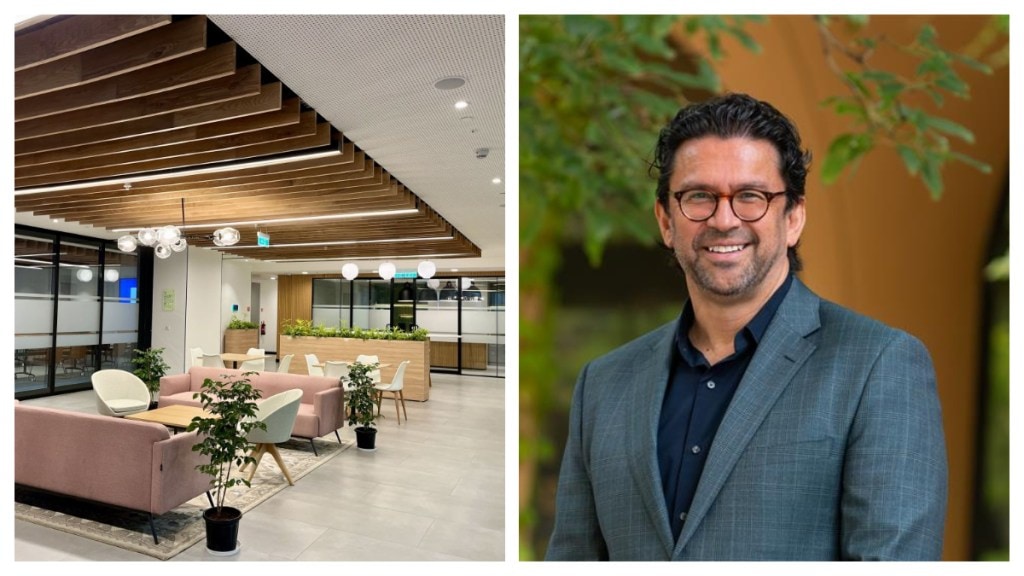One year after opening the Melbourne Global Centre in Delhi, the University of Melbourne (UniMelb) is proving that two-way international academic engagement means more than just recruiting students, or opening a new campus. In an interaction with FE, deputy vice-chancellor Prof Michael Wesley said the Centre has become a hub for research, innovation, and strategic bilateral partnerships, charting a new course for global education.
The launch of the Melbourne Global Centre – Delhi, last September, marked a significant step in UniMelb’s long-standing relationship with India. Instead of pursuing a conventional, full-fledged campus, the university opted for a dedicated home designed to foster broad-based collaboration. This decision, according to Prof Wesley, was deliberate.
“Rather than replicating conventional degrees via a standalone overseas campus, we believe the greatest societal impact comes from flexible shared initiatives that span research, innovation, capacity building, and people-to-people connections,” Prof Wesley said.
For years, UniMelb has cultivated deep ties in India through institutional partnerships, joint programmes, collaborative research, faculty and student mobility, and alumni engagement. This Global Centre is intended to broaden the engagement, allowing the university to work directly with industry, government, academia, and community partners.
“Our focus is on enabling access for as many students as possible to UniMelb experience, underpinned by long-term partnerships rather than a single-focused campus model,” Prof Wesley said. “UniMelb does not operate Global Centres in any other country; India is the first and only country where this dedicated hub has been established.”
A year of operations
In its inaugural year, the Melbourne Global Centre has established itself as a welcoming hub for partners across India to collaborate, share ideas, and launch new projects. The Centre has hosted a range of events. A key achievement was facilitating a landmark joint PhD programme with the Academy of Scientific & Innovative Research (AcSIR), which is crucial for expanding opportunities for next-generation researchers. Policy-focused institutes, such as the Nossal Institute and Melbourne Disability Institute, have also used the Centre to drive new interdisciplinary partnerships in health systems, bioscience, and social inclusion.
Events hosted at the Centre include:
1. Australia’s deputy Prime Minister Richard Marles hosting 50 leaders from education and government to mark the fifth anniversary of the Australia-India Comprehensive Strategic Partnership (CSP).
2. Workshops focused on Advancing High Performance Sport and Victoria-India Opportunities, delivering research to identify future sports partnership.
3. Hosting the Transnational Education workshop as a key initiative for shared learning models.
Two-way collaboration
A central pillar of the Centre’s mission is to facilitate genuine, two-way collaboration, which extends well beyond student recruitment.
“The Centre enables close collaboration with Indian institutions, researchers, industry, and government, allowing us to co-develop research projects, address shared priorities in areas like sustainability, public health, and advanced technology, and support capacity building on both sides,” Prof Wesley said. “Programmes are co-designed and piloted with Indian counterparts before being scaled up. For example, the Bachelor of Science (Blended), launched in 2016, is now delivered through five Indian institutions with over 500 enrolments. The Melbourne India Postgraduate Academy (MIPA) joint PhD has enrolled 52 outstanding candidates, with 16 completions as of August 2025, demonstrating the depth of research collaboration.”
Research for shared impact
UniMelb works closely with India’s top academic and research institutions, including the Indian Institutes of Technology and the Indian Institute of Science. The joint research agenda tackles critical, shared challenges such as sustainable water management, water pollution, agriculture, livestock production, land development, affordable housing, and public health. The Centre amplifies the work of key research institutes, ensuring that research partnerships between Australia and India are practical, impactful, and geared towards solving today’s most pressing issues.
Mid-term goals
Looking ahead 3-5 years, the Global Centre has a clear set of goals aligned with UniMelb’s mission to benefit society through education and research.
A key focus will be establishing dedicated ‘Policy Hubs’ in areas like food security and cybersecurity, acting as platforms to bring together experts from both nations to address shared challenges. The Centre will also focus on:
1. Developing a program of academic visits and lecture series across India, targeting leading institutions and schools.
2. Supporting graduate researchers with mobility opportunities and in-country fieldwork.
3. Scaling existing transnational education initiatives, such as the Bachelor of Science (Blended) and the Advanced (Honours) dual degree, and exploring new pathways across multiple disciplines.
4. Deepening engagement with industry, government, and policy influencers, a priority led by the Global Centre’s director, Prof Muthupandian Ashokkumar.
Prof Wesley added that the university remains open to the possibility of expanding the Centre’s scope or physical presence to other cities in India, depending on the evolving needs and strategic priorities of its partnerships. With fresh momentum from new university leadership, the Melbourne Global Centre is set to strengthen its long-term, equitable collaboration with India, supporting innovation, talent development, and positive change in both nations.


